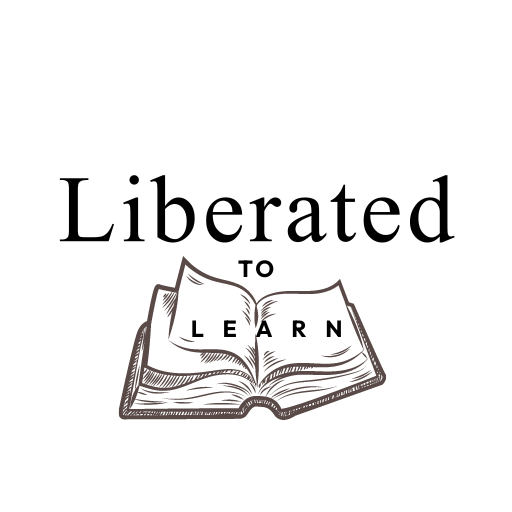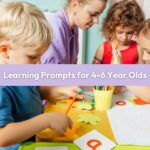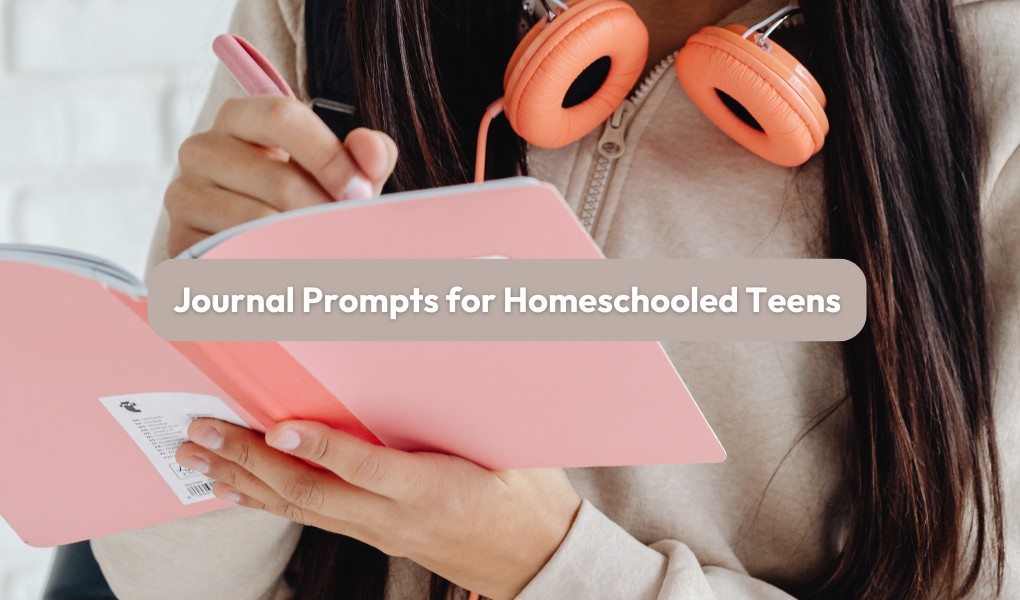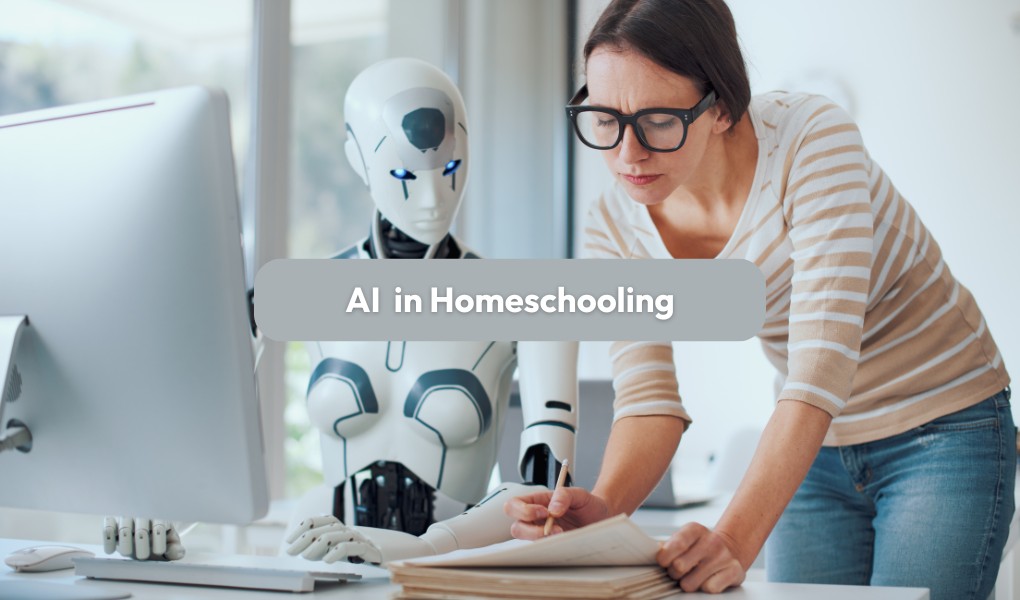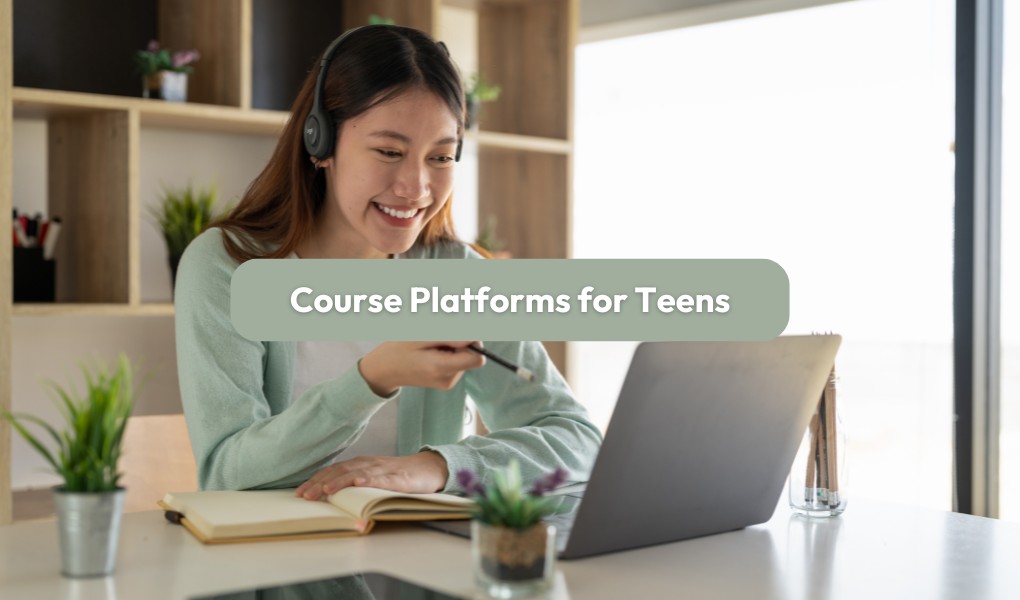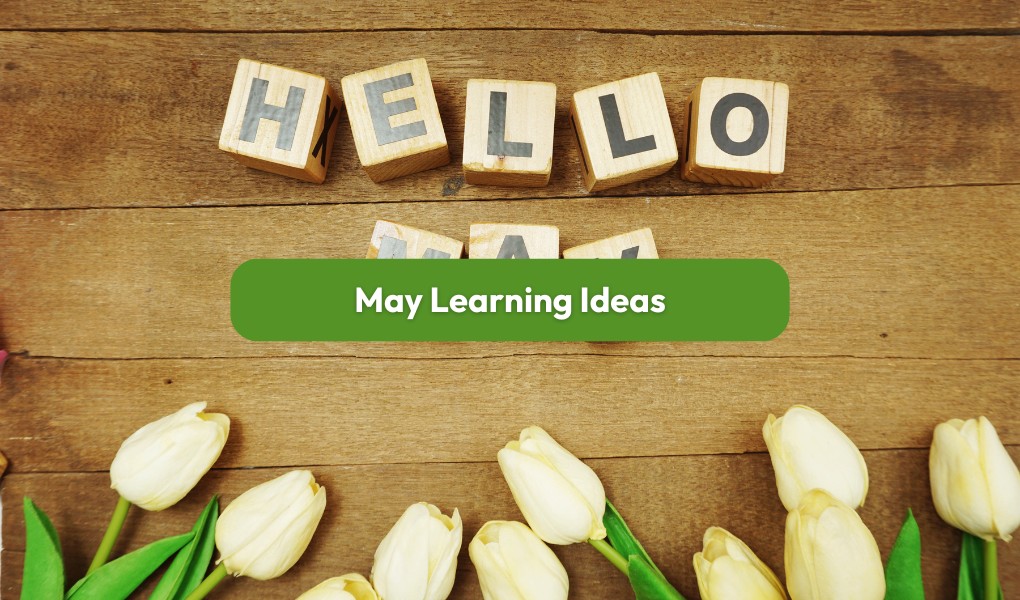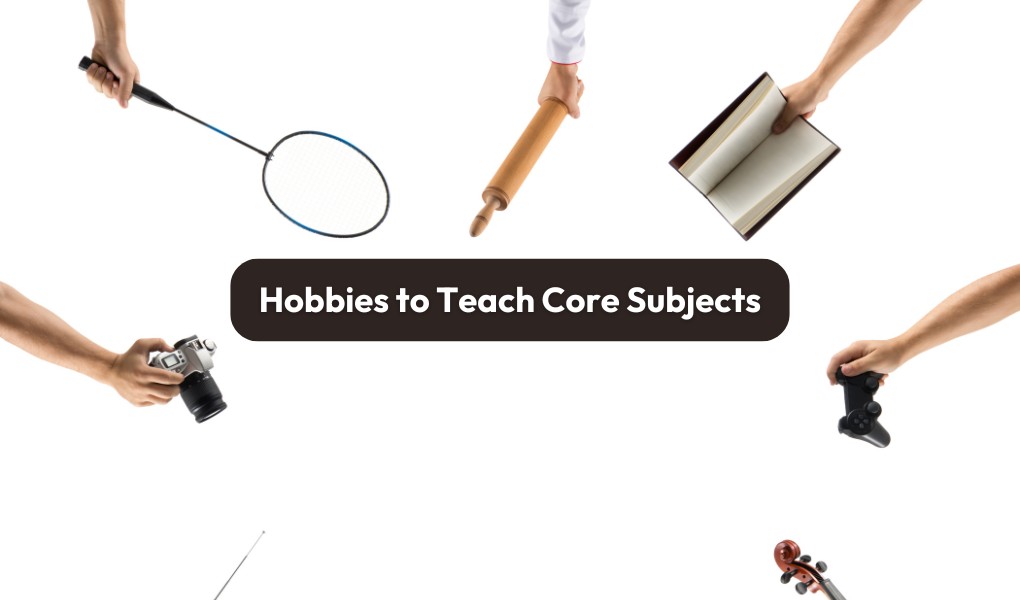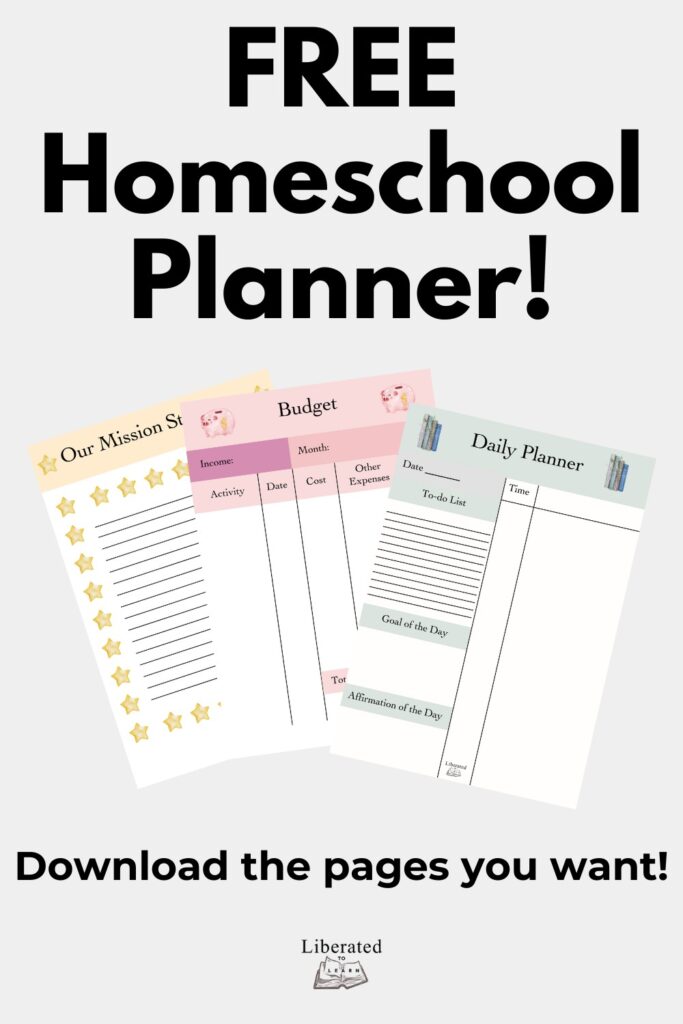In this post, I’m sharing all the things I wish I’d been taught either at school or by my parents as they are now things that I’m giving my children the chance to learn.
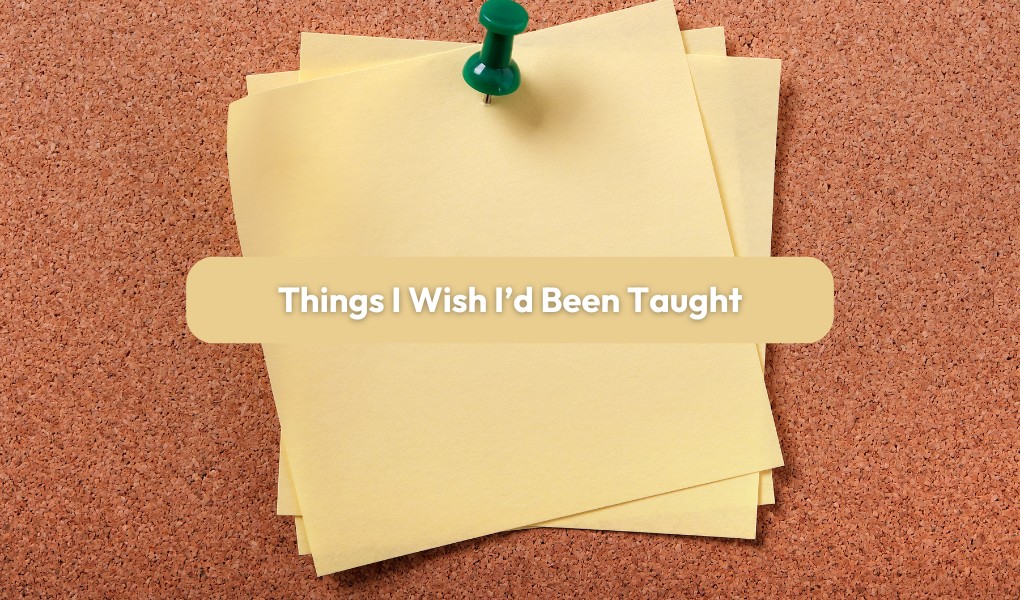
How many of us have had our eyes open to how much knowledge we actually lack since starting home education? I know I have! Even if it’s just through researching different topics or looking for learning ideas, I’m amazed (but not surprised) at how little I know.
Now that I’m a home educator, I often think about all the things I wish I’d been taught, either at school or by my parents. And it also makes me think about how limited school curriculums are in terms of teaching things that are actually valuable in life.
One thing that also crosses my mind is that if our parents haven’t been taught certain things, we’re less likely to learn about them unless we come across them by unexpected discovery or interest.
In this post, I’m sharing all the things I wish I’d been taught either at school or by my parents as they are now things that I’m giving my children the chance to learn.

Things I Wish I’d Been Taught in School and By My Parents (Now That I’m a Home Educator)
Financial Things I Wish I’d Been Taught

How to file taxes
Even now, taxes overwhelm me, and I think a lot of people agree that they wish they’d been taught all about them when they were younger, especially considering how important they are. And yet, we’re just expected to figure them out or resort to an accountant!
How to invest
Investing is truly valuable but I haven’t got a clue about it, and it’s something that I’m slowly trying to figure out. That’s why I want to ensure my children at least understand the basics of investing so that they can make beneficial financial decisions.
Renting vs. a mortgage
I wish someone had taught me the differences between renting and getting a mortgage, and not just the black and white differences, but also the pros and cons of both, and how it all works.
The difference between a debit and credit card
As you get older you hear talk of credit cards and debit cards without really understanding the difference. Banks start offering a credit card on a silver platter and make them sound desirable, right? But if you don’t understand credit, things can get messy pretty quickly and debts start to rack up. I wish schools shared the true differences between a debit and credit card so that teens and young adults are saved from the stress of easy mistakes.
Making a big purchase
I think it’s so important to learn about making a big purchase, and this includes learning the difference between paying on finance and paying outright. It would better prepare young adults for making the right decisions, instead of them getting into tricky situations.
Understanding insurance
Whether it’s for a house, car, or personal possession, you can’t escape insurance, but it’s not something that
Debt and how to manage it
I wish I’d been taught about debt and how to manage it. After all, debt is no small topic but it’s never brought up in school or (from my experience) discussed by parents. If it was talked about, it would save people a lot of hardship and help them make better decisions throughout their adulthood.
Pensions
Okay, I know what a pension is now, but I still don’t understand it properly. Why don’t they teach you about pensions in school?!
Interest rates and inflation
Even if this isn’t taught, it should definitely be talked about. Don’t hit us with these surprise interest rates and inflation if you’re not going to teach it to us or our children. It’s a good thing I will.
How to start a business
Not everyone will want to start their own business, but it’s definitely worth teaching your kids how to do. It’s one of the main things I wish I’d been taught when I was younger, and no Business Studies doesn’t cut it. Start teaching children how to actually start and run a successful business!
Active income vs. passive income
I had no idea what passive income was when I was younger, or I had very little idea at least. I definitely think children should know that they have a choice of creating active and passive income and how to do both if they want to.
Managing bills
Managing bills may seem like a simple task once you know what you’re doing, but it’s yet another thing that school doesn’t prepare teens and young adults for. As a home educator, this is something I’ll definitely be helping my children with.
Practical Things I Wish I’d Been Taught

Basic house maintenance
I wish I’d been taught basic house maintenance because it’s especially frustrating when you have to rely on someone else to help you out with repairs and other issues.
How to make clothes
This might be more of a personal opinion but I would have loved to have been taught how to make clothes. Yes, I know they do have the option of textiles in school but it isn’t something that’s fully covered. Being able to make your own clothes is definitely a handy skill and worth doing, even just as a hobby.
Healthy hair and appropriate skin care
It’s not until you get older that you realise the importance of healthy hair and skin care. I wish I’d been taught not to use so much heat on my hair and what skin care was appropriate for my age. It’s definitely something that’s not given much thought, but it can really make a difference to not only how you look but how you feel.
Buying a car and car maintenance
We all know buying a car isn’t as simple as it sounds. How many of us have bought a car, not knowing what we’re looking for, and ended up with something that cost more to repair than buy?
Simply learning about what to look out for when buying a car and how to maintain one when we’re younger would save a lot of hassle and money.
How to write a will
I think this is an important one and yet it’s another thing that’s overlooked in school until someone brings it up in the future and you think to yourself, wait, I don’t have a will. How do I even write one?
Despite it being something you can get help with, it’s probably going to cost you money—and teens and young adults would benefit a lot more from learning about wills and how to write one in the first place.
Understanding food labels and ingredients
When you do your food shop, how often do you look at the food labels and ingredients? In fact, do you even know what the ingredients mean? I know I don’t, but it’s definitely important. And I think it would make us all a lot more conscious of the food we buy and help children and young adults to make better food choices for themselves.
The basics of homesteading
I think homesteading is such a valuable skill—I mean, what’s better than being self-sufficient? It’s a lifestyle that’s becoming increasingly popular again and I think a lot of children would benefit from learning the basics of homesteading.
How to recognise scams
With the technology we have nowadays, it’s becoming much harder to recognise scams, which is why it’s so important to teach children all about them so that they do not fall victim to some easy ones. Whether it be phone scams, email scams, online scams etc., it’s definitely a topic worth teaching your home educate child.
Reading and understanding contracts
I wish someone had taught me how to read and understand contracts properly because there’s nothing worse than trying to figure out what things mean in a contract. It will also come in handy for teens and young adults when getting a job, a house, or pretty much anything that requires a contract.
A useful trade
I think any sort of trade is really useful to learn because it will not only benefit you personally but it can also be a great source of income. I would have loved to learn a skill like plumbing, carpentry, or sewing, so I want my children to have the opportunity to learn a trade. Even if they don’t make a career out of them, they save time and money in daily life.
Understanding laws
It’s not just about knowing what’s legal or illegal—it’s about understanding your rights, contracts, and how the legal system works. Knowing how to read a lease, deal with disputes, or even the basics of employment law would have been game-changing.
Sign language
Whether you find yourself using it or not, I think learning sign language is an invaluable skill because it really drills home inclusivity. I wish it was something that is included in a lot more curriculums.
Time management
I feel like this is an important skill that isn’t given much attention to children and young people. We’re sort of just expected to figure it out for ourselves, but time management isn’t always easy and some find it harder than others. I wish I’d been taught how to prioritise tasks and break down big projects into manageable steps. Even now, as an adult, time management can be challenging.
How to upcycle
Upcycling is such a creative skill that I wish I learnt. What better way to save money, help the environment, and have a fun hobby than by repurposing old furniture, clothes or other items?!
Personal Things I Wish I’d Been Taught

How to set goals and plan for the future
It’s so important to dream big when you’re a child and learning how to set goals and plan for the future would benefit children so much. I definitely feel like it’s something that home educators do right but schools overlook.
How to set boundaries and enforce them
Setting boundaries can feel uncomfortable, especially if you’re a people-pleaser. Learning how to say “no” respectfully and prioritise my own well-being would have made a huge difference in many areas of my life. I think it’s so important for children to learn how to set and enforce boundaries from a young age.
Qualities of a healthy relationship or marriage
It’s one thing to want a healthy relationship, but understanding what it actually looks like—mutual respect, communication, and emotional safety—would have been so valuable. For teens, this topic is definitely a vital one to bring up.
How to recognise a toxic relationship
It’s equally important, if not more so, to learn about toxic relationships. They can easily sneak up on you, and knowing the warning signs—manipulation, gaslighting, and lack of respect—could save years of heartache.
Procrastination and how to manage it
We all procrastinate and it’s completely normal. Although it can be mistaken for laziness, it’s often tied to fear, perfectionism, or overwhelm. I feel like learning how to break through those mental barriers would have been so helpful, and would benefit children a lot more nowadays, especially with technology and so many distractions.
Understanding your body
Our bodies go through so much, yet we’re often left to figure it out ourselves. I wish I’d been taught more about how hormones, sleep, nutrition, and exercise affect overall well-being. It’s so important for children and young people to understand their own bodies because they go through so many changes.
Sex and contraception
I know that schools teach sex education but I feel like it’s a topic that isn’t delved into deep enough. It’s like something that teachers and parents want to quickly get out of the way, or not talk about much at all. I think it would really benefit teens to learn about topics like pleasure, consent, and the emotional side of intimacy, alongside the basics.
Having a baby
I wish I’d been taught what it’s like to have a baby, and that doesn’t just mean having the baby, it means everything that comes after having a baby: signs of postpartum depression, looking after your pelvic floor, adjusting to life with a newborn, and so on.
Social & Emotional Things I Wish I’d Been Taught

Understanding mental health
Mental health is such a big topic now, but I still think it’s overlooked. Because of social media, it’s more important than ever to understand your emotional wellbeing, recognise when you need help, and break the stigma around asking for it.
Self-care
Self-care isn’t just about bubble baths and treating yourself; it’s understanding when you need to recharge and how to make it a regular, guilt-free habit. I wish I’d known this when I was younger and was taught how to practise self-care. It’s just as important for children as it is for adults.
Managing emotions
Big emotions are hard to handle, especially as a child. What’s important for us as home educators and parents to teach and for children to learn is how to regulate their emotions and manage difficult situations.
Dealing with conflict
In daily life, we’re bound to come across conflict, but it’s not always easy to handle. If taught skills like listening actively, finding common ground, and approaching disagreements with empathy, children will be better able at managing conflict. It’s definitely something I wish I was taught to handle better.
Dealing with grief
Grief is such a universal experience, yet it feels like no one talks about it until you’re in the thick of it. For children, grief can be such a strange and foreign emotion. I remember not knowing how to handle it, mainly because I didn’t understand how to. Processing loss and supporting others who are grieving would have made difficult times more bearable.
How to build confidence
Confidence isn’t something you’re just born with—it’s a skill you develop. I wish I’d been shown how to build confidence in myself and take pride in my achievements without feeling like I’m bragging.
Knowing our human rights
How many of you understand your basic human rights? I know I couldn’t tell you. But understanding our basic human rights—at work, in relationships, and in society—is so important. It’s empowering to know where you stand and what protections you’re entitled to.
Understanding the impacts of social media
Although it’s not something that I experienced until I was older, understanding the impacts of social media is more important now than ever. It’s such a big part of modern life, but we’re rarely taught how to navigate it responsibly. It’s a no-brainer that children would benefit from understanding the effects of social media on mental health, relationships, and self-esteem.
Recognising a bad employer
You might be lucky and have a decent employer for every job, but that isn’t always the case. Young people shouldn’t feel like they are stuck in a job or worried about what is and isn’t mistreatment.
How to network
Networking is often portrayed as something only for extroverts, but it’s really about building genuine connections. Learning how to do that would have taken a lot of the fear out of “putting myself out there.”
How to ask for help
Asking for help can be one of the hardest things to do, but it’s also one of the most important. I wish I’d been taught how to seek support without feeling like a burden, especially as an introvert, and I think many children and young people feel the same.
Survival Skills I Wish I’d Been Taught

Water safety
Water safety matters at any age, but I wish it was given a lot more attention. It’s not just about learning how to swim; it’s understanding currents, managing panic, and how to float. People don’t always expect to get into trouble in water but you just never know.
How to escape a rip current
This is such a specific and lifesaving skill, yet many people (myself included) don’t necessarily learn it unless they’ve been in a scary situation.
First aid and CPR
Basic first aid can be the difference between life and death. I wish I’d been taught CPR and how to handle situations like choking, burns, or allergic reactions. It’s the most invaluable of skills and I think every child should have the opportunity to learn it.
How to escape a fire
I wish fire safety went beyond “stop, drop, and roll.” Learning how to safely exit a burning building, avoid smoke inhalation, and use a fire extinguisher is extremely practical and life-saving.
How to identify a gas leak
Gas leaks are dangerous, yet subtle and children wouldn’t necessarily know how to identify one unless they’d been taught. Knowing what to look for, how to react, and how to prevent them could save lives.
How to navigate without technology
We rely so heavily on phones and GPS, but if those failed, I wouldn’t have a clue how to use a map or compass. This feels like such a lost art.
Foraging
I’ve always found the idea of foraging so intriguing, but I’ve never really known where to start. Being able to identify edible plants and avoid poisonous ones isn’t just a practical skill—it feels like a way to truly connect with nature and appreciate what’s around us. I’d love to have the confidence to walk through the woods and know what’s safe to eat or how plants can be used for medicine or cooking.
Knot tying
You never know when knot tying will come in handy—whether it’s securing a load in the car, setting up a tent, or just being prepared for unexpected situations. It seems like such a simple skill, but it’s one I wish I’d been taught early on.
How to build a fire
There’s something so primal and empowering about being able to start a fire. It’s not just about warmth or cooking—it’s about knowing you can provide for yourself in the wild if you had to.
How to build a shelter
The idea of being able to build a shelter from what’s around you feels like such an essential skill, but I wouldn’t even know where to begin. Whether it’s to stay warm, dry, or protected, learning how to construct a simple, functional shelter would give children so much more confidence in the outdoors.
How to filter water
I’ve always taken clean water for granted, but when you think about it, access to safe drinking water is one of the most crucial survival skills. I wish I’d been taught how to filter and purify water using basic tools or natural materials. It’s such an important skill that could make all the difference when you need it most.
Now that I’m a home educator, these are the things that I wish I’d been taught, but they’re also things that I’m going to make sure my children have the opportunity to learn when they’re ready.
How many of these things do you wish that you’d been taught as a child? Comment below!
Related: The Ultimate List of Life Skills to Teach Children

m@liberated
Want more from Liberated to Learn?
Subscribe to stay updated about new posts, resources and giveaways!

